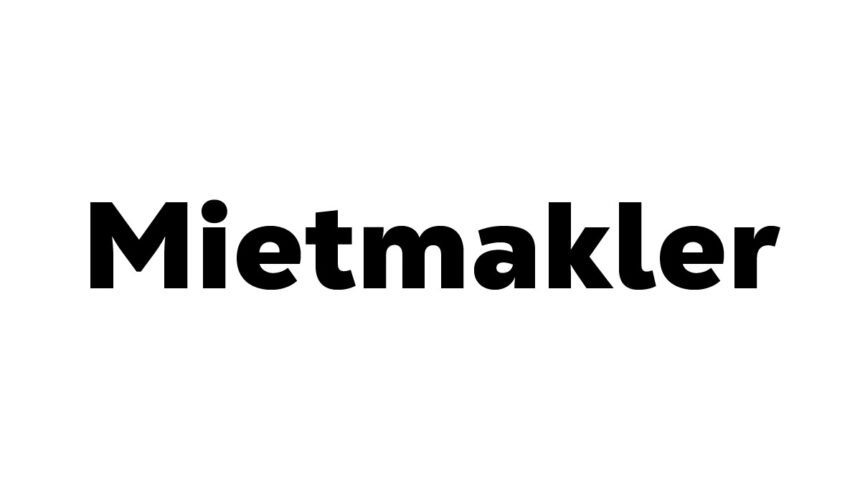In today’s fast-moving and highly competitive German housing market, the role of a Mietmakler has become more vital than ever before. With rental demand soaring in urban centers like Berlin, Munich, and Frankfurt, and housing supply tightening due to demographic shifts and regulatory challenges, finding an apartment or securing a reliable tenant is no longer a straightforward process.
This complexity has led to the rise of Mietmaklers, professional rental brokers who act as bridges between tenants and landlords, simplifying what can otherwise be an overwhelming journey. A Mietmakler is not just someone who shows apartments; they are expert negotiators, market analysts, legal advisors, and trusted confidants rolled into one.
Their role continues to evolve in 2025 as Germany introduces new housing laws and technology continues to reshape the rental landscape. From helping newcomers find homes in unfamiliar cities to assisting landlords in navigating legal frameworks and screening quality tenants, Mietmaklers have firmly established themselves as an indispensable part of Germany’s urban living ecosystem.
What Is a Mietmakler?
A Mietmakler is a licensed real estate professional in Germany who specializes in rental properties, focusing exclusively on connecting landlords with tenants and managing all the complexities involved in the process. Unlike a traditional Immobilienmakler, who may also handle property sales, a Mietmakler’s core responsibility lies in the rental domain — from sourcing properties to drawing up legal documents. In simple terms, a Mietmakler is the go-to person when someone is looking to rent a home or lease their property to a trustworthy tenant. Their expertise lies not just in showing apartments, but in understanding market trends, vetting applicants, offering legal advice, and ensuring both parties are protected under the strict regulations of German tenancy law. They serve as both matchmaker and mediator, guiding each side through a high-stakes process that requires accuracy, transparency, and professional diligence.
The History and Evolution of Mietmaklers
Historically, Mietmaklers were seen as gatekeepers of rental properties in Germany, often charging steep fees to tenants regardless of who hired them. This led to widespread frustration and criticism, as tenants frequently found themselves paying for services they never explicitly requested. However, the industry underwent a major transformation in 2015 with the introduction of the “Bestellerprinzip” — a legal reform that realigned the fee structure and professional expectations of Mietmaklers. Post-2015, the person who hires the Mietmakler is legally obligated to pay for the service, resulting in more fairness and transparency for tenants. This shift forced many brokers to raise their standards, become more client-focused, and adopt new digital tools to stay competitive. The profession has since evolved into a modern, tech-enabled service that blends legal knowledge, customer service, and real estate expertise — ensuring Mietmaklers today are far more professional, regulated, and trusted than in the past.
Legal Framework: Understanding the Bestellerprinzip
One of the most important legal reforms that reshaped the Mietmakler profession is the Bestellerprinzip, or “ordering party principle.” Implemented in 2015, this law mandates that the party who commissions the services of a Mietmakler must be the one who pays the broker’s fee. This simple but powerful shift brought much-needed fairness to the rental process. Before this reform, tenants often had to pay the broker’s commission even if the landlord had hired the agent. Now, the law protects tenants from incurring unjust fees. The legal basis for this reform lies in §656 BGB (German Civil Code) and Gewerbeordnung §34c, which outline licensing, responsibilities, and consumer protections for brokers. As a result, Mietmaklers today are held to stricter standards and must comply with clear ethical and financial disclosure practices. This legal evolution has helped establish Mietmaklers as credible professionals who operate with transparency and accountability.
What Services Does a Mietmakler Provide?
The services of a Mietmakler extend far beyond simply finding or advertising an apartment. For landlords, Mietmaklers handle property evaluations, set optimal rental prices, photograph and market the property, screen potential tenants, verify income and creditworthiness through tools like Schufa checks, organize property viewings, and draft legally compliant lease agreements. They also mediate rental terms, manage tenant questions, and act as the first line of defense against rental fraud. For tenants, Mietmaklers provide exclusive access to properties not listed on public portals, assist in interpreting rental contracts, help negotiate terms like deposit size and notice periods, and offer legal guidance on rights and obligations. They also save tenants time by filtering listings based on budget, lifestyle, and commuting preferences. This dual-service approach makes Mietmaklers valuable allies for both sides of the rental market.
Why Landlords Hire Mietmaklers
For landlords, time is money — and a vacant property represents lost income. Hiring a Mietmakler helps landlords avoid prolonged vacancy periods by accelerating the process of tenant placement. Beyond speed, Mietmaklers bring strategic advantages: they understand market pricing, target marketing to the right audience, and screen applicants rigorously to reduce the risk of missed rent payments or property damage. They also handle administrative tasks like lease drafting, deposit collection, and compliance with local rental laws. In addition, many Mietmaklers offer value-added services such as furnishing coordination, digital viewings, and long-term property management support. For landlords who want a hassle-free and legally sound rental process, working with a Mietmakler is a smart and often essential decision.
Why Tenants Use Mietmaklers
Tenants, especially in major cities where competition is intense, often find Mietmaklers to be lifesavers in the rental process. In cities like Berlin or Hamburg, an attractive listing can receive over 100 applications within hours. Mietmaklers provide a strategic edge by offering early access to exclusive listings and guiding applicants through competitive bidding processes. They help tenants prepare compelling rental applications, explain the legal fine print of leases, negotiate fair terms, and ensure contracts adhere to Germany’s tenant protection laws. For expats, students, and professionals relocating from other cities or countries, Mietmaklers offer clarity, confidence, and convenience. Their local knowledge helps newcomers avoid overpriced, poorly maintained, or legally questionable rentals — making them trusted partners in securing safe and stable housing.
Mietmakler Fees: Who Pays and How Much?
One of the most common questions surrounding Mietmaklers is: who pays and how much? Thanks to the Bestellerprinzip, the answer is clear — the person who hires the Mietmakler is the one who pays. In most cases, this means the landlord covers the cost, especially in urban areas where demand is high. Standard Mietmakler fees range from one to two months’ rent plus 19% VAT. Some brokers also offer alternative pricing models such as flat-rate packages or hourly consulting fees, especially for tenants who request personalized assistance. Importantly, all fees must be disclosed upfront in writing, and any attempt to charge hidden fees or circumvent the law can result in legal consequences. Tenants should always request a written agreement before engaging services, and avoid brokers who demand payment without a signed commission contract.
The Modern Tools of a Mietmakler
The image of a broker with a clipboard and paper contracts is outdated. Today’s Mietmaklers operate with an advanced tech toolkit that enhances both speed and service quality. Customer relationship management (CRM) platforms like FlowFact or onOffice allow brokers to manage listings, schedule viewings, and track client interactions efficiently. Virtual tour tools such as Matterport and Immoviewer enable tenants to “walk through” properties online before scheduling a visit. AI-driven tenant matching systems assess applications based on financial stability, preferences, and previous rental behavior. Contracts are now signed digitally using platforms like DocuSign, while social media has become a key tool for marketing, with Instagram and TikTok being used to showcase listings. These innovations help Mietmaklers stay agile in a digital-first market while providing clients with a smoother, faster rental experience.
Mietmakler vs. Online Portals
While online property portals like ImmobilienScout24, Immonet, and WG-Gesucht have simplified property searches, they can’t match the personalized service and legal expertise of a Mietmakler. Mietmaklers offer human interaction, customized recommendations, and insider access to unlisted rentals. They provide emotional support during stressful apartment hunts and ensure contracts are legally sound. In contrast, portals are impersonal, prone to scams, and often filled with outdated or duplicate listings. Tenants who rely solely on portals may end up wasting time on unsuitable or already-rented apartments, whereas Mietmaklers help them focus on real, relevant, and verified opportunities.
Benefits of Hiring a Mietmakler
The benefits of working with a Mietmakler are numerous. For tenants, it means less time spent browsing, reduced legal risk, and increased access to hidden gems in the market. For landlords, it means securing high-quality tenants faster, avoiding regulatory pitfalls, and maximizing rental income. Mietmaklers also serve as neutral mediators, helping resolve disputes and ensuring transparent communication between both parties. Their deep knowledge of local laws, pricing trends, and tenant behavior makes them invaluable advisors in a complex and competitive market.
Disadvantages or Limitations
Despite their benefits, Mietmaklers do come with some limitations. Their services are not free for the party commissioning them, and in rare cases, some brokers may not provide the expected level of service. It’s crucial to research and choose a reputable Mietmakler with proven experience, verified licenses, and transparent fee structures. Additionally, tenants or landlords who prefer direct communication may find brokered transactions less flexible. However, for most, the pros far outweigh the cons — especially in a tight and highly regulated housing market.
How to Choose the Right Mietmakler
Choosing a good Mietmakler involves careful consideration. Always verify that the broker is licensed under §34c GewO and has a strong online presence with positive client reviews. Ask for references, review their service offerings, and ensure all fees are disclosed in writing. Check if they specialize in your target neighborhood and whether they use modern tools like virtual tours and digital contracts. Most importantly, evaluate their communication style. A good Mietmakler listens to your needs, responds promptly, and offers honest, realistic advice.
Mietmaklers in Different German Cities
Mietmaklers operate differently across regions. In Berlin, they must navigate rent caps, bureaucratic hurdles, and fierce competition. Munich Mietmaklers often focus on luxury properties and cater to professionals. In Hamburg and Frankfurt, brokers may deal with a mix of international clients and local renters. Smaller towns usually involve more personal networks and word-of-mouth referrals. Each city presents unique challenges, and working with a locally experienced Mietmakler can significantly improve your rental outcome.
The Future of Mietmaklers
The future of Mietmaklers lies in a hybrid model — blending technology with empathy. As AI becomes more prevalent, Mietmaklers will use predictive analytics to forecast market trends, pre-match listings, and optimize pricing strategies. Sustainability and ESG-conscious rentals are also becoming a niche area of expertise. However, the human touch remains irreplaceable. Tenants and landlords still crave trust, transparency, and emotional intelligence — qualities that no algorithm can replicate. The Mietmakler of the future will be both digitally savvy and deeply human.
Mietmaklers in a Global Context
Germany’s Mietmakler model is gaining attention worldwide, especially due to the fairness introduced by the Bestellerprinzip. Countries like Austria, the Netherlands, and parts of Canada are exploring similar frameworks to protect tenants and encourage ethical brokerage practices. The German model proves that strong regulation can lead to better service, greater trust, and more balanced housing markets — a lesson other countries are beginning to adopt.
Myths About Mietmaklers — Debunked
Many myths surround Mietmaklers, such as the idea that they only work for landlords or charge excessive fees. In reality, they offer services to both sides, and their fees are strictly regulated. Another myth is that brokers are obsolete in the digital age — but the truth is that their value has only grown as the market becomes more complex. Ethical Mietmaklers prioritize client satisfaction and operate with transparency, making them a valuable asset rather than a burden.
Tips for Tenants and Landlords
Tenants should prepare their documents early (ID, proof of income, Schufa report) and be clear about their budget and preferences. Ask about all fees upfront and review lease terms carefully. Landlords should define their ideal tenant profile, agree on commission terms in writing, and verify the broker’s experience and legal knowledge. Whether you’re renting out or moving in, these tips ensure you get the most from your Mietmakler.
Conclusion
The Mietmakler is no longer just a middleman — they are essential facilitators of urban life in Germany. In a market defined by regulation, competition, and rapid change, Mietmaklers bring structure, trust, and efficiency. They help tenants find homes that feel right and enable landlords to lease properties safely and profitably. As technology reshapes the industry, the human expertise of Mietmaklers will remain at the heart of every successful rental journey.
FAQs About Mietmakler
What is a Mietmakler?
A Mietmakler is a licensed rental agent in Germany who helps connect tenants with landlords. They assist with finding rental apartments, screening tenants, handling paperwork, and making sure rental agreements follow the law.
Who pays the Mietmakler fee in Germany?
In Germany, the person who hires the Mietmakler must pay the fee. This rule is called the Bestellerprinzip. If the landlord hires the agent, the landlord pays. If the tenant hires the agent, the tenant pays.
How much does a Mietmakler charge?
A Mietmakler usually charges one to two months’ rent plus 19% VAT. The exact amount depends on the service, the location, and whether it’s a full commission or flat fee agreement.
Do I need a Mietmakler to rent an apartment in Germany?
No, you don’t need a Mietmakler to rent in Germany. But using one can save time, help avoid scams, and make sure the rental contract is legal and fair—especially in big cities like Berlin or Munich.
What services does a Mietmakler provide?
A Mietmakler helps with property searches, schedules viewings, checks tenant backgrounds, writes rental contracts, and gives legal advice. They work for both tenants and landlords to make the rental process easier and safer.
You May Read Also: Pyjamaspapper Magic: The Cozy Fashion Trend Everyone Loves
For More Information, Visit Dotmagazine









